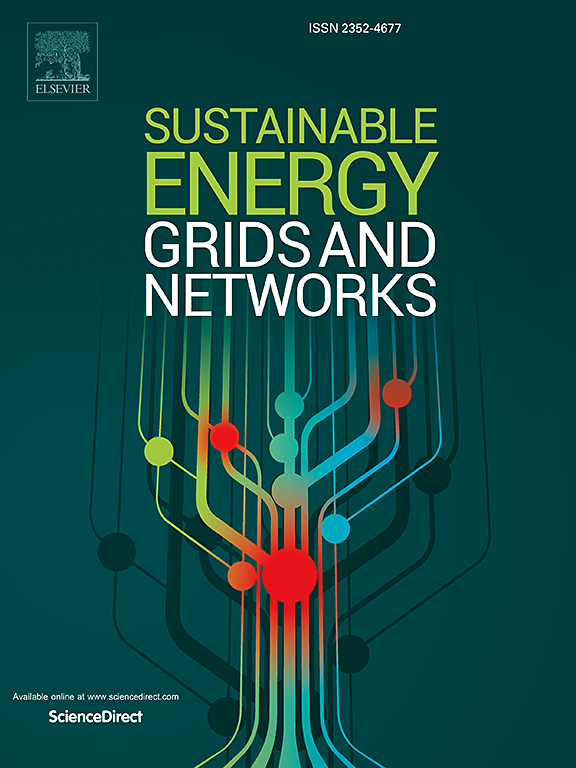DSO-prosumers cooperative scheduling approach considering multi-timescale peer-to-peer transactions of electricity and flexibility resources
IF 5.6
2区 工程技术
Q2 ENERGY & FUELS
引用次数: 0
Abstract
The rapid evolution of peer-to-peer (P2P) transaction mechanisms has facilitated end-use prosumers in energy sharing to enhance energy utilization and address uncertainties in renewable energy sources (RES). However, the lack of coordination across different timescales and heterogeneous distributed resources results in potential economic losses. To this end, a cooperative scheduling approach considering multi-timescale P2P transactions is proposed. Firstly, multi-timescale P2P transactions mechanism is proposed to coordinate the heterogeneous resources between prosumers. In day-ahead stage, prosumers engage in electricity transactions using expected output of RES. In intraday stage, flexible resources are traded among prosumers to mitigate prediction deviation of RES. Meanwhile, the Nash bargaining theory is introduced to allocate the interests. Then, to determine reasonable flexibility requirement in intraday stage, a two-side chance constrained economic dispatch (TS-CCED) model is proposed, in which DSO can set the reference requirement interval at given confidence level to balance the economy and safety of system operation. Finally, to reduce the computational complexity, the Gaussian mixture model is applied to convert the TS-CCED model into a convex optimization problem with guaranteed accuracy. Case study based on the IEEE 33-bus system and IEEE-123 bus system verifies the effectiveness of the proposed method.
考虑多时间尺度点对点电力交易和灵活性资源的dso -产消合作调度方法
点对点(P2P)交易机制的快速发展促进了最终用户的能源共享,以提高能源利用和解决可再生能源(RES)的不确定性。然而,由于缺乏跨时间尺度的协调和资源分布的异质性,造成了潜在的经济损失。为此,提出了一种考虑多时间尺度P2P交易的协同调度方法。首先,提出了多时间尺度P2P交易机制,以协调生产消费者之间的异构资源。在日前阶段,产消者利用可再生能源的预期产出进行电力交易。在日内阶段,产消者之间进行柔性资源交易以缓解可再生能源的预测偏差,同时引入纳什议价理论进行利益分配。然后,为了确定日内阶段合理的灵活性需求,提出了双向机会约束经济调度(TS-CCED)模型,DSO可以在给定的置信水平上设置参考需求区间,以平衡系统运行的经济性和安全性。最后,为了降低计算复杂度,采用高斯混合模型将TS-CCED模型转化为保证精度的凸优化问题。基于IEEE 33总线系统和IEEE-123总线系统的实例研究验证了所提方法的有效性。
本文章由计算机程序翻译,如有差异,请以英文原文为准。
求助全文
约1分钟内获得全文
求助全文
来源期刊

Sustainable Energy Grids & Networks
Energy-Energy Engineering and Power Technology
CiteScore
7.90
自引率
13.00%
发文量
206
审稿时长
49 days
期刊介绍:
Sustainable Energy, Grids and Networks (SEGAN)is an international peer-reviewed publication for theoretical and applied research dealing with energy, information grids and power networks, including smart grids from super to micro grid scales. SEGAN welcomes papers describing fundamental advances in mathematical, statistical or computational methods with application to power and energy systems, as well as papers on applications, computation and modeling in the areas of electrical and energy systems with coupled information and communication technologies.
 求助内容:
求助内容: 应助结果提醒方式:
应助结果提醒方式:


